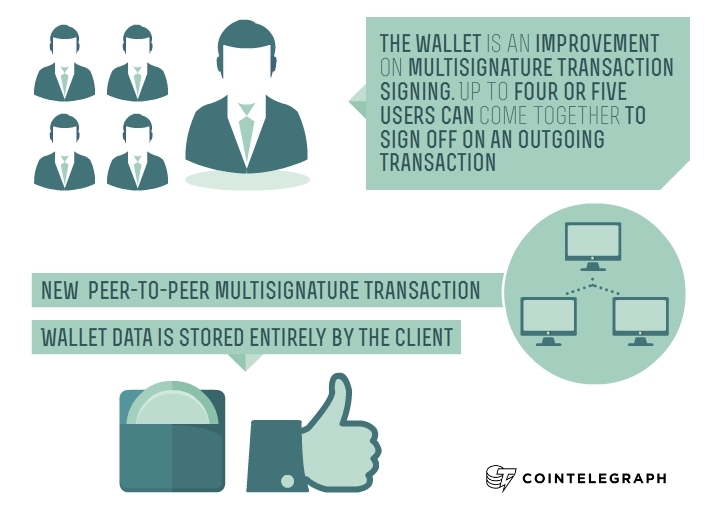Amid all the hype, Bitpay has been quietly developing some unique additions to its model, and now Copay, the closest thing to a decentralized wallet, is nearing completion.
“At Bitpay, we had very specific needs for our corporate funds,” said lead developer Ryan Charles in a
presentation on the developments at a Bitcoin Meetup event in San Francisco.
As its name suggests, the wallet is an improvement on multisignature transaction signing. Up to four or five users (the limit comes as a result of the size capabilities of the signature script) can come together to sign off on an outgoing transaction.
Charles and his team have now further optimized the process to suit the Bitcoin model by making the multisignature transaction process decentralized in the form of a peer-to-peer network.
Fraud meets its match
A wallet is created and its address shared with all signing parties by a method of the creator’s choosing. Once signed, the transaction is then sent using the WebRTC protocol which allows data channels to be set up between browsers.
The sequence revolves around two servers; an internal one allowing balance calculation and which broadcasts transactions to the network, and a PeerJS server which acts as a library, helping facilitate trading and connections using WebRTC.
Wallet data is stored entirely by the client; no information is left on a central exchange server. Ryan Charles notes:
“This is way, way easier to do multisig than it was before. It’s completely open source; we’ve developed this completely in the open.”
And while the question of security isn’t entirely solved by Copay, Charles recognizes it as a “significant improvement.” The few pitfalls arise with the perennial risk of fraud, as leaked wallet addresses could mean a foreign party even enters the signing group. For this, however, Bitpay has added video function, meaning any unknown faces could be rooted out rather effectively.
Other potential problems lie more in the nature of WebRTC, an example cited by Charles being the risk of transaction failure when several party members are behind firewalls. Plans are underway to resolve this by using either a holding server or, more ideally for Bitpay, a decentralized alternative.
On the whole, there is little left to do, and Charles confirms that the next challenge is the initial launch, for which Bitpay is still testing its servers to ensure any rapid uptake is catered for seamlessly.
For now, more information on Copay can be found here.

